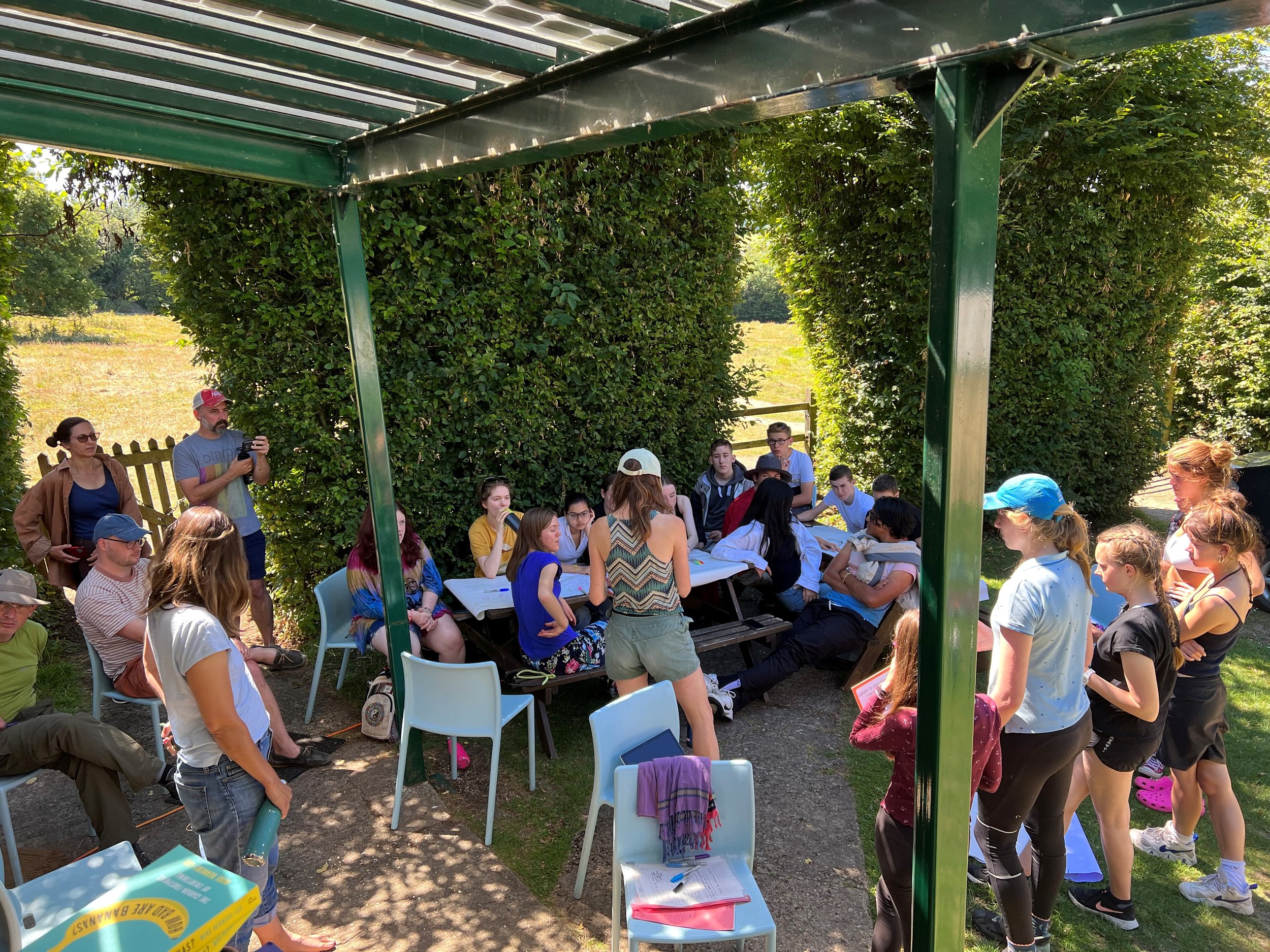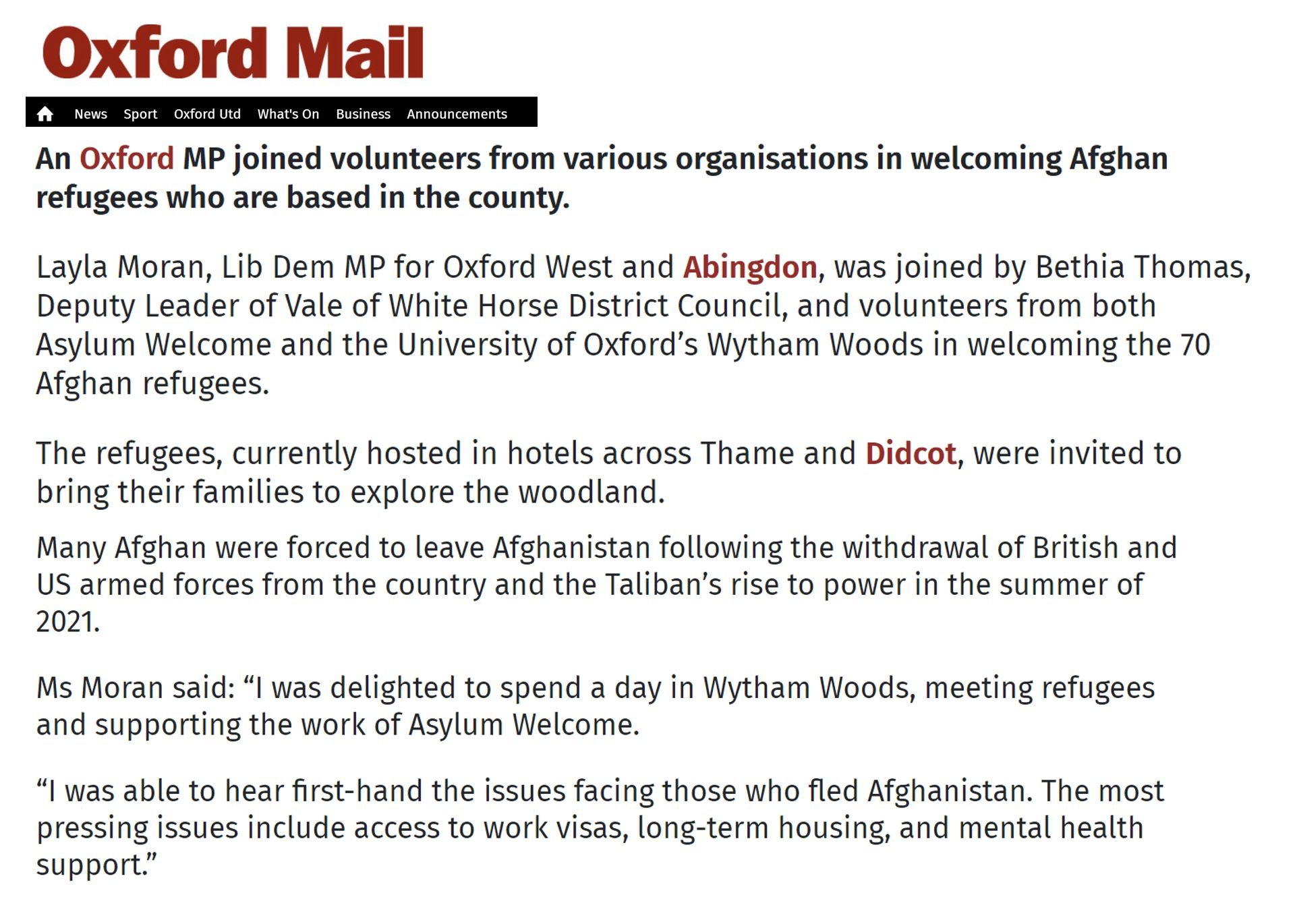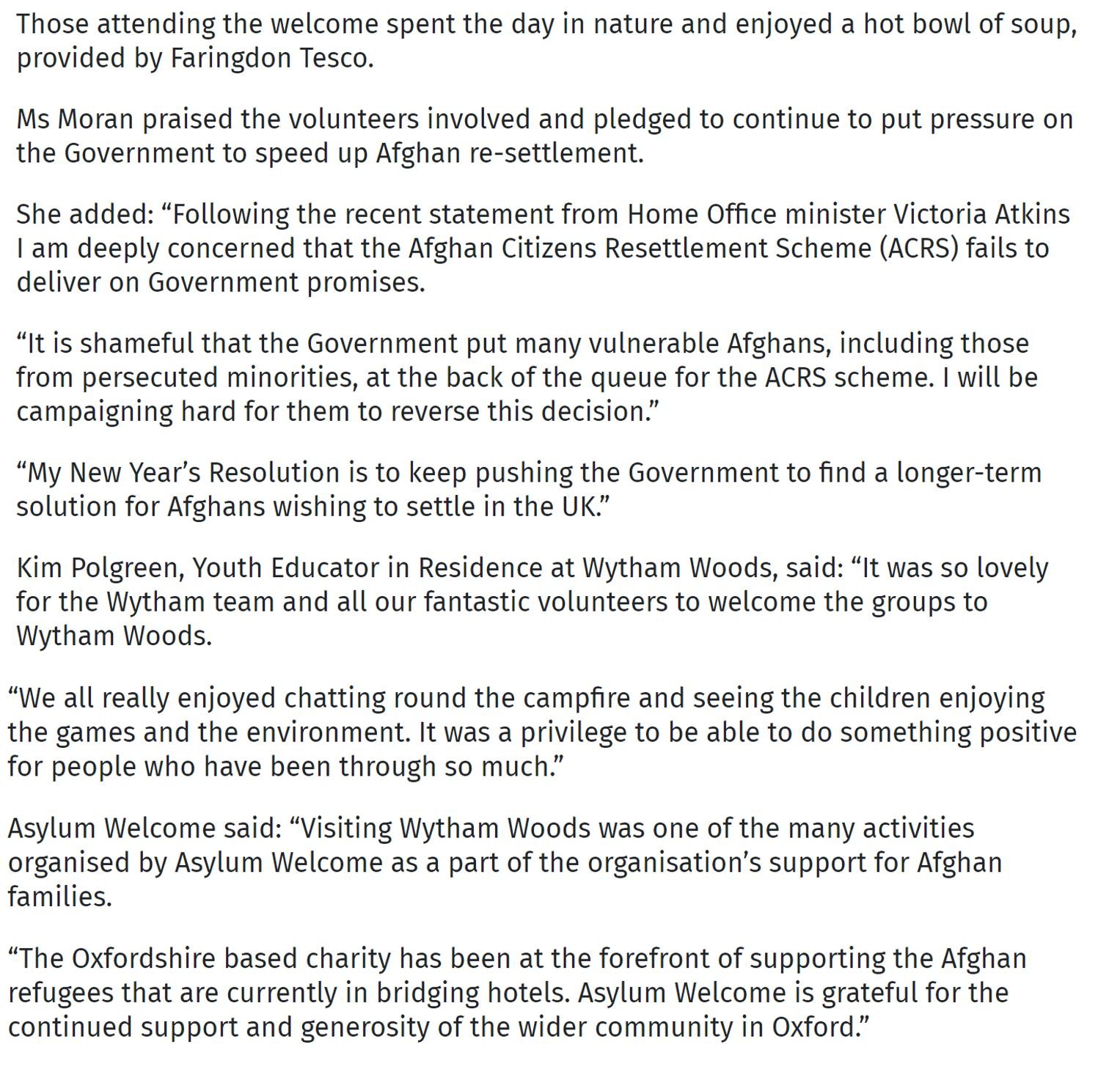“Thanks so much for the wonderful experience for Kate and the others. She really loved her time there!! If you had any pictures, Kate was sad she didn’t really take any of the group and would love some! Though she does have lots of cute moth and bat pictures🥰 Thanks so much for all your hard work!!”
Each year I run a summer school on behalf of the Environmental Change Institute at Oxford University. Having had to cancel in 2020 due to Covid, in 2021 we moved it to Wytham Woods, and camped, due to continuing Covid restrictions. This year, we decided to stay at Wytham, and use the lovely little dorm rooms in the Chalet. The combination of comfort and wilderness was perfect.
We had twelve students staying for three days. They explored the woods, discussed climate science, climate impacts and climate solutions, talked about nature based solutions and regenerative agriculture, met and talked to University researchers, went up the canopy walkway, cooked together, sat round camp fires and played games, discussed climate and ecology with two expert teachers, did some nature art, and worked with a DPhil student on a theatre production, went badger watching, saw bats up close.
We asked them what they liked about the course and this is what they said:
“The activities we did were fun and educational…. The timetable was good and had enough time to do everything…. I like the kitchen area…. The talks were interesting…. Bonfires…. Activities where we learned a lot about climate change etc… Theatre activity and art activities…. Good food…. Card games…. Seeing pretty moths…. Walk with friends…. The showers were very good…. Substantial amount of food…. Power naps…. Happy leaders…. Badgers were great meditation…. The art was fun…. Tiye was very good as she was our age…. Knowledge given…. Research projects…. Theatre…. Bonfire…. Food was nice…. Good number of people…. I learned a lot of new stuff…. Chalet was nice…. Sitting around fire pit…. Seeing bats…. Art part…. Fun to learn about identifying plants…. I got to experience what PhD research is like…. The speakers covered a range of different topics in the environmental sector…. Time to regroup and relax…. Learned a lot…. Really nice set up of the chalet - communal…. It’s nice to have quite a small group so that you can get to know each other…. Bats!… Moths!… Morning walk…. Camp fire….”
They also have us some great ideas about how we could improve it for next time. Main take home is that we need to help our experts be more interactive - it’s always a challenge for young researchers to step into education. And they wanted more time to explore the Woods by themselves - one full afternoon was not enough!
I learn more each year about how to teach young people about nature and climate. But actually as the situation gets more serious, it gets harder. I am trying to strike a balance between them having a good time and enjoying the Woods, while learning about what is happening to them because of Climate Change.
Huge thanks to my friend Jeni for working with me - we’ve been working together for nearly 20 years on summer camps! To Martyn Steiner who came up each day to help with the discussions and who put on an impromptu lesson on the last morning. To Charlotte Schofield who came up and inspired us about doing art in the Woods. To Tiye (year 12) who has become an expert in regenerative agriculture since she decided to look at it for her EPQ last year, and who came out to Wytham on her way to London to talk to us about what she knows and was totally brilliant. To Dr Curt Lamberth who we bumped into and happily found 20 minutes to take the group up the canopy walkway. To Dr Phil Grunewald who cycled all the way up the hill to talk to us about energy systems. To Dr Tanesha Allen who always delights us with badger research stories. To Sara Middleton whose enthusiasm for and love of plants fired us all with enthusiasm. To Nigel and the Wytham team for supporting us. And to the ECI for continuing to support this initiative.
Next year’s course will be 25th - 27th July, again at Wytham Woods.

























































